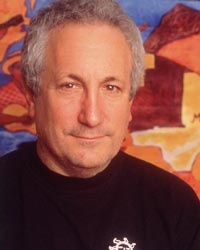 Courtesy Putumayo
Courtesy Putumayo
When Brooklyn-based Dan Storper started making global music compilations to play in his Putumayo clothing and handicraft stores, he never dreamed that his hobby would develop into a record label known for introducing such artists as Oliver Mtukudzi from Zimbabwe and Brazil's Rita Ribeiro. We checked in with Storper after 10 years of heading Putumayo World Music to discuss global sounds, his nomadic travels, and where to find the best zydeco musicians in the world.
1) Where does the name Putumayo come from?
After graduating in 1974 with a degree in Latin American studies, I decided to visit the countries I'd studied. Late one day, I arrived in a valley near the Putumayo river in southern Colombia during Carnival celebrations. The native Indians were returning from the fields to put on their holiday costumes and there was alegria , happiness, in the air. I decided to name my company after that place and experience.
2) What is world music?How would you define this term?
To be honest, a group of British labels invented the term in the 1980's as a way to organize international music in record stores. It has since come to represent music from many diverse cultures such as reggae, Latin rumba, African highlife and other international genres. I see it as music that comes out of tribal traditions.
3) How do you find the artists that are featured on Putumayo?
I've traveled to Cape Verde, Senegal, and South Africa for research, while our A&R director generally scouts artists in Brazil, the Dominican Republic, Italy, and beyond. There's a lot of great music in the European capitals, too. I just returned from a trip to Belgium, Paris and Seville.
4) What do you pack when you travel?
I always bring a few travel books on the region, the best maps I can find, a laptop, international adapters, and comfortable clothing. And, of course, a CD player.
5) What do you look for in a new artist?
Putumayo seeks out music that both represents a culture and lifts people's spirits. Many of the places we showcase face a multitude of problems, such as war, disease, and poverty. Our aim is to present the more positive aspects of these regions-their rich traditions of music, dance, art, film, and cuisine.
6) Why is music such a good way to introduce people to a place?
Music is quite infectious. Once your feet start tapping to a song, chances are you'll think more positively about the place it came from.
7) How does music draw people to a place?
Music quite often puts a spotlight on less familiar destinations. We've been to Cuba with the Buena Vista Social Club, Cape Verde with Cesaria Evora, and Mali with Ali Farka Touré and Habib Koité. As Americans listen to music beyond our shores, we naturally develop a more open-minded perspective on the world.
8) Any advice for travelers looking to hear great local music?
Ask salespeople at record stores for club or artist recommendations, check out the city's entertainment listings, and, most important, be prepared to stay up late.
9) What's the best city for live music in the world?
It's a toss-up between Paris and New York for international music. London is also coming into its own. But almost every country has a powerful scene. There's gypsy music in Budapest, Hungary, and Prague; a multitude of R&B, Caribbean, and zydeco musicians in New Orleans; cool DJ and live scenes in Rome; intense Afro-pop and Afro-Latino music in Dakar, Senegal; many of the great Brazilian musical styles in Rio, Bahia, and Sao Paulo; and traditional salsa and more contemporary Latin sounds in Havana.
10) If you could be anywhere right now, where would it be?Why?
Sometimes I find myself sitting at the computer wishing I was on one of my favorite Caribbean Islands. Frankly, though, I'm always ready to see a place I've never been before.